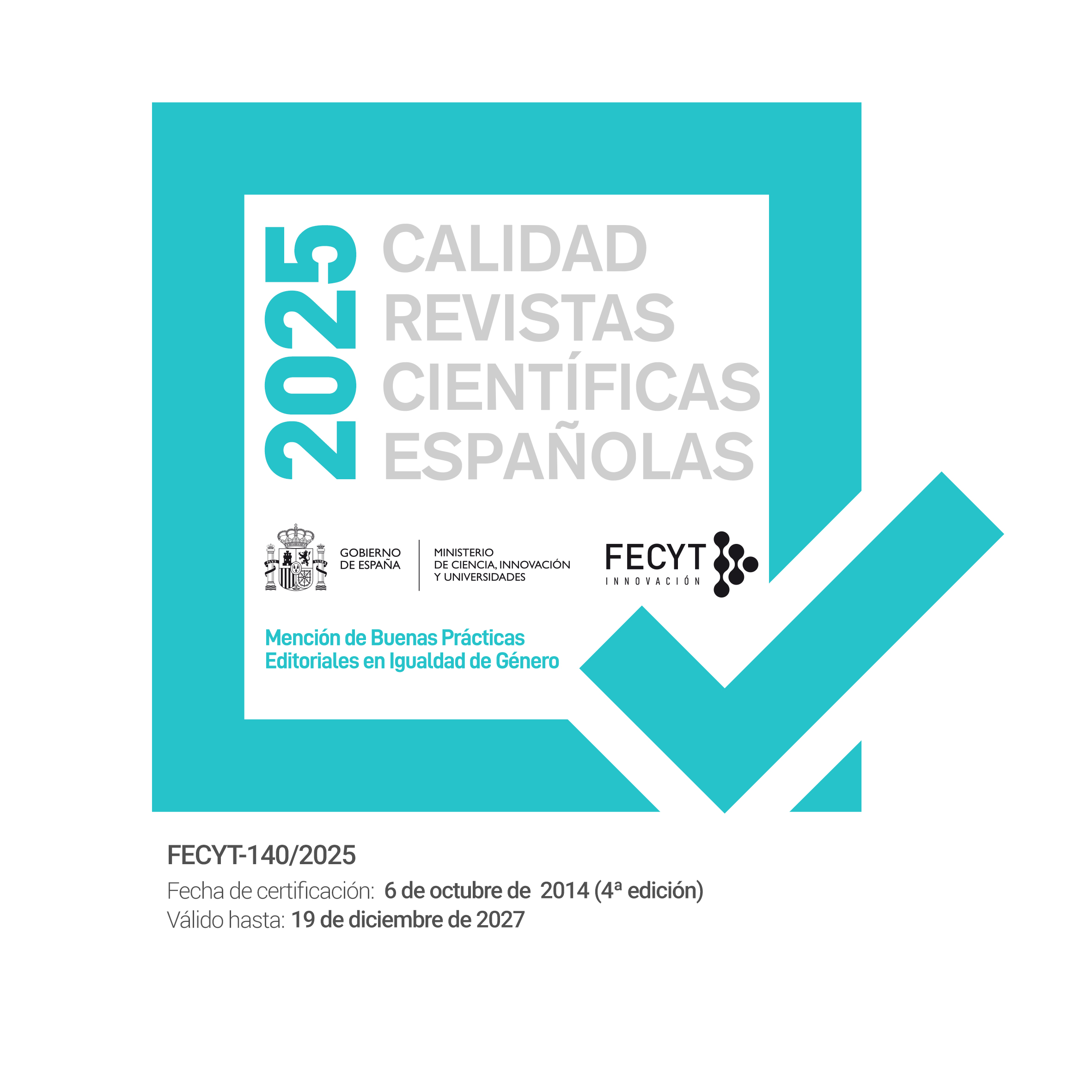Desmotivación en el profesorado de educación física: una aproximación desde la percepción de presiones y su vocación
DOI:
https://doi.org/10.5944/educxx1.36488Palabras clave:
Intereses, enseñanza, docentes, motivaciónResumen
El creciente malestar personal que experimenta el profesorado en su trabajo está recibiendo gran atención en la última década. Las presiones que perciben en su ámbito laboral o el interés vocacional que presentan han sido señalados como factores que podrían influir tanto sobre su bienestar como su práctica docente. Siguiendo la teoría de la autodeterminación, el presente trabajo tuvo como objetivo comprobar la existencia de perfiles en profesores de Educación Física (EF) según las presiones y vocación percibidas, así como analizar la frustración de las necesidades psicológicas básicas y la desmotivación en dichos perfiles. Participaron un total de 245 profesores de EF (129 hombres y 116 mujeres) con una media de 39.04 años de edad (DT = 10.12) y 13.70 años de experiencia (DT = 9.74). Los análisis clúster pusieron de manifiesto la existencia de tres perfiles diferentes: un grupo de profesores que percibían altas presiones y tenían alta vocación, otro grupo que percibía bajas presiones y tenía baja vocación, y un último grupo que percibía bajas presiones y mostraba alta vocación. Estos perfiles se caracterizaron por diferencias significativas en las variables motivacionales analizadas, siendo el grupo de profesores que mostró niveles bajos de presiones percibidas y alta vocación el que se identificó con los patrones motivacionales más adaptativos. Los hallazgos ponen de manifiesto la necesidad de atención hacia los intereses vocacionales desde las instituciones educativas, y sugieren la influencia de las presiones percibidas sobre la desmotivación de los docentes, pudiendo afectar de forma negativa a su práctica docente.
Descargas
Citas
Abós, A., Haerens, L., Sevil, J., Aelterman, N., & García-González, L. (2018). Teachers’ motivation in relation to their psychological functioning and interpersonal style: a variable-and person-centered approach. Teaching and Teacher Education, 74, 21-34. https://doi.org/10.1016/j.tate.2018.04.010
Abós, A., Sevil, J., Haerens, L., Aelterman, N., & García-González, L. (2019). Towards a more refined understanding of the interplay between burnout and engagement among secondary school teachers: a person-centered perspective. Learning and Individual Differences, 72, 69-79. https://doi.org/10.1016/j.lindif.2019.04.008
Albarracín, A., Moreno-Murcia, J. A., & Beltrán-Carrillo, V. J. (2014). La situación actual de la educación física según su profesorado: an estudio cualitativo con profesores de la Región de Murcia. Cultura, Ciencia y Deporte, 9(27), 225-234. https://doi.org/10.12800/ccd.v9i27.469
American Psychological Association. (2002). Ethical principles of psychologists and code of conduct (Amended August 3, 2016). American Psychological Association.
Bartholomew, K. J., Ntoumanis, N., Cuevas, R., & Lonsdale, C. (2014). Job pressure and ill-health in physical education teachers: the mediating role of psychological need thwarting. Teaching & Teacher Education, 37, 101-107. https://doi.org/10.1016/j.tate.2013.10.006
Bartholomew, K. J., Ntoumanis, N., Ryan, R. M., & Thogersen-Ntoumani, C. (2011). Psychological need thwarting in the sport context: assessing the darker side of athletic experience. Journal of Sport & Exercise Psychology, 33, 75-102. https://doi.org/10.1123/jsep.33.1.75
Behzadnia, B., Adachi, P. J. C., Deci, E. L., & Mohammadzadeh, H. (2018). Associations between students’ perceptions of physical education teachers’ interpersonal styles and students’ wellness, knowledge, performance, and intentions to persist at physical activity: a self-determination theory approach. Psychology of Sport and Exercise, 39, 10-19. https://doi.org/10.1016/j.psychsport.2018.07.003
Berger, J.-L., & Girardet, C. (2021). Vocational teachers’ classroom management style: the role of motivation to teach and sense of responsibility. European Journal of Teacher Education, 44(2), 200-216. https://doi.org/10.1080/02619768.2020.1764930
Buckley, D., Abbott, D., & Franey, J. (2017). An exploration of Irish teachers’ experiences of stress. Irish Journal of Applied Social Studies, 17(1), 28-47. https://doi.org/10.21427/D7M71K
Burgueño, R., Macarro-Moreno, J., & Medina-Casaubón, J. (2020). Psychometry of the Multidimensional Perceived Autonomy Support Scale in Physical Education with Spanish secondary school students. SAGE Open, 10(1), 2158244019901253. https://doi.org/10.1177/2158244019901253
Cheon, S. H., Reeve, J., Yu, T. H., & Jang, H. (2014). The teacher benefits from giving autonomy support during physical education instruction. Journal of Sport & Exercise Psychology, 36, 331-346. https://doi.org/10.1123/jsep.2013-0231
Cuevas, R., Ntoumanis, N., Fernandez-Bustos, J. G., & Bartholomew, K. (2018). Does teacher evaluation based on student performance predict motivation, well-being, and ill-being? Journal of School Psychology, 68, 154-162. https://doi.org/10.1016/j.jsp.2018.03.005
Cuevas, R., Sánchez-Oliva, D., Bartholomew, K. J., Ntoumanis, N., & García-Calvo, T. (2015). Adaptation and validation of the Psychological Need Thwarting Scale in Spanish physical education teachers. Spanish Journal of Psychology, 18, 1-9. https://doi.org/10.1017/sjp.2015.56
Deci, E. L., & Ryan, R. M. (1985). Intrinsic motivation and self-determination in human behaviour. Plenum.
Dobrow, S. R. (2013). Dynamics of calling: a longitudinal study of musicians. Journal of Organizational Behavior, 34(4), 431-452. https://doi.org/10.1002/job.1808
Escriva-Boulley, G., Haerens, L., Tessier, D., & Sarrazin, P. (2021). Antecedents of primary school teachers’ need-supportive and need-thwarting styles in physical education. European Physical Education Review, 27(4), 961-980. https://doi.org/10.1177/1356336X211004627
Franco, E., Coterón, J., Gómez, V., & Spray, C. M. (2021). A person-centred approach to understanding dark-side antecedents and students’ outcomes associated with physical education teachers’ motivation. Psychology of Sport and Exercise, 57, 102021. https://doi.org/10.1016/j.psychsport.2021.102021
Franco, E., Cuevas, R., Coterón, J., & Spray, C. (2022). Work pressures stemming from school authorities and burnout among physical education teachers: the mediating role of psychological needs thwarting. Journal of Teaching in Physical Education, 41(1), 110-120. https://doi.org/10.1123/jtpe.2020-0070
Gagné, M., Forest, J., Vansteenkiste, M., Crevier-Braud, L., Van den Broeck, A., Aspeli, A. K., Bellerose, J., Benabou, C., Chemolli, E., Güntert, S. T., Halvari, H., Indiyastuti, D. L., Johnson, P. A., Molstad, M. H., Naudin, M., Ndao, A., Olafsen, A. H., Roussel, P., Wang, Z., & Westbye, C. (2014). The multidimensional work motivation scale: validation evidence in seven languages and nine countries. European Journal of Work and Organizaztional Psychology, 24(2), 178-196. https://doi.org/10.1080/1359432X.2013.877892
Hair, J. F., Anderson, R. E., Tatham, R. L., & Black, W. C. (1998). Multivariate data analysis. Prentice-Hall.
Hambleton, R. K., & Patsula, L. (1998). Adapting tests for use in multiple languages and cultures. Social Indicators Research, 45(1), 153-171.
Hernández-Franco, V., & Franco, E. (2020). La transición del Bachillerato a la Universidad: identidad vocacional de los alumnos con preferencia por los estudios de Ciencias de la Actividad Física y el Deporte. Revista Complutense de Educación, 31(2), 261-272. https://doi.org/10.5209/rced.63133
Hoff, K. A., Song, Q. C., Wee, C. J. M., Phan, W. M. J., & Rounds, J. (2020). Interest fit and job satisfaction: a systematic review and meta-analysis. Journal of Vocational Behavior, 123, Artículo 103503. https://doi.org/10.1016/j.jvb.2020.103503
Holzberger, D., Maurer, C., Kunina-Habenicht, O., & Kunter, M. (2021). Ready to teach? A profile analysis of cognitive and motivational-affective teacher characteristics at the end of pre-service teacher education and the long-term effects on occupational well-being. Teaching and Teacher Education, 100, 103285. https://doi.org/10.1016/j.tate.2021.103285
Hornstra, L., Stroet, K., & Weijers, D. (2021). Profiles of teachers’ need-support: how do autonomy support, structure, and involvement cohere and predict motivation and learning outcomes? Teaching and Teacher Education, 99, 103257. https://doi.org/10.1016/j.tate.2020.103257
Jansen in de Wal, J., den Brok, P. J., Hooijer, J. G., Martens, R. L., & van den Beemt, A. (2014). Teachers’ engagement in professional learning: exploring motivational profiles. Learning and Individual Differences, 36, 27-36. https://doi.org/10.1016/j.lindif.2014.08.001
Lawson, H. A, (1983a). Toward a model of teacher socialization in physical education: the subjective warrant, recruitment, and teacher education (part 1). Journal of Teaching in Physical Education 2(3), 3–16. https://doi.org/10.1123/jtpe.2.3.3
Lawson H. A. (1983b). Toward a model of teacher socialization in physical education: entry into schools, teachers’ role orientations, and longevity in teaching (part 2). Journal of Teaching in Physical Education, 3(1), 3–15.
Longo, Y., Alcaraz-Ibáñez, M., & Sicilia, A. (2018). Evidence supporting need satisfaction and frustration as two distinguishable constructs. Psicothema, 30(1), 74-81. https://doi.org/10.7334/psicothema2016.367
Madero, C. (2021). Because I Am called: how a calling to teach emerges and develops in teachers working in catholic high schools. Teaching and Teacher Education, 101, 103319. https://doi.org/10.1016/j.tate.2021.103319
Mtika, P., & Gates, P. (2011). What do secondary trainee teachers say about teaching as a profession of their «choice» in Malawi? Teaching and Teacher Education, 27(2), 424-433. https://doi.org/10.1016/j.tate.2010.09.012
Nye, C. D., Su, R., Rounds, J., & Drasgow, F. (2017). Interest congruence and performance: revisiting recent meta-analytic findings. Journal of Vocational Behavior, 98, 138-151. https://doi.org/10.1016/j.jvb.2016.11.002
Pelletier, L., Séguin-Lévesque, C., & Legault, L. (2002). Pressure from above and pressure from below as determinants of teachers’ motivation and teaching behaviors. Journal of Educational Psychology, 94(1), 186-196. https://doi.org/10.1037//0022-0663.94.1.186
Pop, M. M., & Turner, J. E. (2009). To be or not to be… a teacher? Exploring levels of commitment related to perceptions of teaching among students enrolled in a teacher education program. Teachers and Teaching, 15(6), 683-700. https://doi.org/10.1080/13540600903357017
Ren, F., & Zhang, J. (2015). Job stressors, organizational innovation climate, and employees’ innovative behavior. Creativity Research Journal, 27(1), 16-23. https://doi.org/10.1080/10400419.2015.992659
Romero-Sánchez, E., Gil-Martínez, L., & Almagro-Durán, E. (2020). La vocación en la identidad del maestro de Educación Infantil: una revisión de la última década. Revista Electrónica en Educación y Pedagogía, 4(7). https://doi.org/10.15658/rev.electron.educ.pedagog20.11040709
Rosso, B. D., Dekas, K. H., & Wrzesniewski, A. (2010). On the meaning of work: a theoretical integration and review. Research in Organizational Behavior, 30, 91-127. https://doi.org/10.1016/j.riob.2010.09.001
Slemp, G. R., Field, J. G., & Cho, A. S. H. (2020). A meta-analysis of autonomous and controlled forms of teacher motivation. Journal of Vocational Behavior, 121, 103459. https://doi.org/10.1016/j.jvb.2020.103459
Soenens, B., Sierens, E., Vansteenkiste, M., Dochy, F., & Goosens, L. (2012). Psychologically controlling teaching: examining outcomes, antecedents, and mediators. Journal of Educational Psychology, 104(1), 108-120. https://doi.org/10.1037/a0025742
Spittle, M., Jackson, K., & Casey, M. (2009). Applying self-determination theory to understand the motivation for becoming a physical education teacher. Teaching and Teacher Education, 25(1), 190-197. https://doi.org/10.1016/j.tate.2008.07.005
Stebbings, J., Taylor, I. M., Spray, C., & Ntoumanis, N. (2012). Antedecents of perceived coach interpersonal behaviors: the coaching environment and coach psychological well— and ill-being. Journal of Sport & Exercise Psychology, 34, 481-502. https://doi.org/10.1123/jsep.34.4.481
Taylor, I. M., Ntoumanis, N., & Smith, B. (2009). The social context as a determinant of teacher motivational strategies in physical education. Psychology of Sport & Exercise, 10, 235-243. https://doi.org/10.1016/j.psychsport.2008.09.002
Taylor, I. M., Ntoumanis, N., & Standage, M. (2008). A self-determination theory approach to understanding the antecedents of teachers’ motivational strategies in physical education. Journal of Sport & Exercise Psychology, 30(1), 75-94. https://doi.org/10.1123/jsep.30.1.75
Thomson, M. M., Turner, J. E., & Nietfeld, J. L. (2012). A typological approach to investigate the teaching career decision: motivations and beliefs about teaching of prospective teacher candidates. Teaching and Teacher Education, 28(3), 324-335. https://doi.org/10.1016/j.tate.2011.10.007
Valenzuela, J., Muñoz, C., & Marfull-Jensen, M. (2018). Perfiles motivacionales durante la formación inicial docente. Profesorado. Revista de Currículum y Formación del Profesorado, 22(1), 325-346. https://doi.org/10.30827/profesorado.v22i1.9931
van Uden, J. M., Ritzen, H., & Pieters, J. M. (2013). I think I can engage my students. Teachers’ perceptions of student engagement and their beliefs about being a teacher. Teaching and Teacher Education, 32, 43-54. https://doi.org/10.1016/j.tate.2013.01.004
Vansteenkiste, M., Ryan, R. M., & Soenens, B. (2020). Basic psychological need theory: advancements, critical themes, and future directions. Motivation and Emotion, 44(1), 1-31. https://doi.org/10.1007/s11031-019-09818-1
Vasconcellos, D., Parker, P. D., Hilland, T., Cinelli, R., Owen, K. B., Kapsal, N., Lee, J., Antczak, D., Ntoumanis, N., Ryan, R. M., & Lonsdale, C. (2020). Self-determination theory applied to physical education: a systematic review and meta-analysis. Journal of Educational Psychology, 112(7), 1444-1469. https://doi.org/10.1037/edu0000420
Vermote, B., Aelterman, N., Beyers, W., Aper, L., Buysschaert, F., & Vansteenkiste, M. (2020). The role of teachers’ motivation and mindsets in predicting a (de)motivating teaching style in higher education: a circumplex approach. Motivation and Emotion, 44, 270-294. https://doi.org/10.1007/s11031-020-09827-5
Vermote, B., Vansteenkiste, M., Aelterman, N., van der Kaap-Deeder, J., & Beyers, W. (2022). Teachers’ psychological needs link social pressure with personal adjustment and motivating teaching style. The Journal of Experimental Education, 1-22. https://doi.org/10.1080/00220973.2022.2039584
von Haaren-Mack, B., Schaefer, A., Pels, F., & Kleinert, J. (2020). Stress in physical education teachers: a systematic review of sources, consequences, and moderators of stress. Research Quarterly for Exercise and Sport, 91(2), 279-297. https://doi.org/10.1080/02701367.2019.1662878
Washburn, N. S., R Richards, K. A., & Sinelnikov, O. A. (2020). The development of US physical education teachers’ motivating styles: a socialization perspective. European Physical Education Review, 26(2), 495–514. https://doi.org/10.1177/1356336X19873355
Watt, H. M. G., & Richardson, P. W. (2007). Motivational factors influencing teaching as a career choice: development and validation of the FIT-Choice Scale. The Journal of Experimental Education, 75(3), 167-202. https://doi.org/10.3200/JEXE.75.3.167-202

Descargas
Publicado
Cómo citar
Número
Sección
Licencia
Derechos de autor 2023 Javier Coterón, Alba González-Peño, Evelia Franco

Esta obra está bajo una licencia internacional Creative Commons Atribución-NoComercial 4.0.
La revista Educación XX1 se publica bajo licencia Creative Commons Reconocimiento-NoComerciaL 4.0 (CC BY-NC 4.0). Se permite la generación de obras derivadas siempre que no se haga un uso comercial. Tampoco se puede utilizar la obra original con finalidades comerciales.










